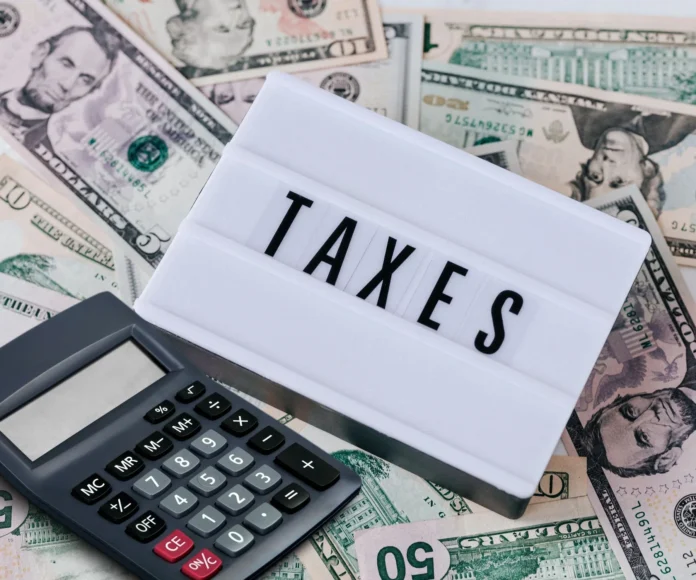Still Time to Claim $1,400 Stimulus Money from the IRS
Many taxpayers who have not yet filed their 2021 tax returns might still qualify for stimulus payments that were issued during the peak of the Covid-19 pandemic. However, the Internal Revenue Service (IRS) has emphasized that there is a crucial deadline to meet. Those who fail to file on time risk losing out on money that could provide financial relief.
IRS Urges Taxpayers to File Before April 15
The IRS has reminded individuals that the deadline to submit their 2021 tax return and claim any outstanding stimulus payments is April 15, 2025. Those who missed out on previous payments may still have an opportunity to receive the funds, provided they file their returns on time. Since the stimulus payments were designed to support individuals and families during economic uncertainty, ensuring eligibility can be an important financial step.
What to Know About the Unclaimed Stimulus Payments
The IRS had previously announced that individuals who were eligible for these payments but did not receive them could expect a check in the mail or a direct deposit into their bank accounts. It was reported that approximately $2.4 billion in payments had been set aside, with most recipients expected to see the funds by late January 2025.
These payments were specifically allocated for individuals who had filed a 2021 tax return but either left the Recovery Rebate Credit section blank or incorrectly marked it as $0 despite being eligible.
Additionally, taxpayers who recently moved or changed their banking details are advised to verify their information to ensure they receive any owed payments without delay. The IRS has encouraged people to check their tax records for accuracy and update their information if needed.
Who Is Eligible to Claim the $1,400 Stimulus?
Taxpayers who meet the following criteria may be entitled to the stimulus money:
- Those whose 2021 tax returns have not yet been submitted.
- Individuals who qualified for the Recovery Rebate Credit but did not claim it on their return.
- Households that met the income and filing requirements for stimulus eligibility.

The maximum amount that can be received is $1,400 per individual. However, actual payments vary depending on the household’s financial situation. Families with dependents may qualify for additional payments, making it even more important to review eligibility requirements.
Over 1 Million People Have Unclaimed Refunds
In addition to the stimulus payments, the IRS has revealed that over 1 million taxpayers nationwide have unclaimed refunds for the 2021 tax year. Estimates suggest that nearly 40,000 taxpayers in Ohio alone may be entitled to a refund, with a median refund amount of $762.
The IRS has also noted that refund amounts may be higher for taxpayers who qualify for additional tax credits, such as the Earned Income Tax Credit (EITC) or the Child Tax Credit (CTC). These credits can significantly increase refunds, making it essential for eligible taxpayers to file their returns as soon as possible.
Breakdown of Unclaimed Refunds by State
| State | Estimated Residents Affected | Average Refund | Total Potential Refunds |
| Alabama | 18,300 | $750 | $16,250,000 |
| Alaska | 3,700 | $835 | $3,500,000 |
| Arizona | 29,000 | $685 | $24,500,000 |
| Arkansas | 10,500 | $715 | $8,900,000 |
| California | 117,000 | $605 | $93,000,000 |
| Colorado | 19,500 | $785 | $17,500,000 |
| Connecticut | 11,800 | $865 | $11,200,000 |
| Delaware | 4,500 | $795 | $4,200,000 |
| District of Columbia | 2,800 | $890 | $2,700,000 |
| Florida | 70,500 | $735 | $61,500,000 |
| Georgia | 39,000 | $725 | $33,800,000 |
| Hawaii | 5,600 | $870 | $5,300,000 |
| Idaho | 5,600 | $650 | $4,500,000 |
| Illinois | 45,000 | $895 | $42,800,000 |
| Indiana | 25,500 | $780 | $22,800,000 |
| Iowa | 11,000 | $800 | $10,000,000 |
| Kansas | 9,800 | $750 | $8,700,000 |
| Kentucky | 14,000 | $750 | $12,200,000 |
| Louisiana | 17,500 | $780 | $15,400,000 |
| Maine | 4,200 | $820 | $3,800,000 |
| Maryland | 23,000 | $840 | $21,900,000 |
| Massachusetts | 27,500 | $940 | $26,800,000 |
| Michigan | 41,000 | $860 | $37,500,000 |
| Minnesota | 16,000 | $675 | $13,500,000 |
| Mississippi | 9,700 | $705 | $8,400,000 |
| Missouri | 23,000 | $725 | $20,100,000 |
| Montana | 3,700 | $680 | $3,100,000 |
| Nebraska | 5,100 | $765 | $4,500,000 |
| Nevada | 14,000 | $785 | $12,500,000 |
| New Hampshire | 4,900 | $835 | $4,600,000 |
| New Jersey | 32,000 | $660 | $26,700,000 |
| New Mexico | 7,300 | $850 | $6,600,000 |
| New York | 74,000 | $1,000 | $73,000,000 |
| North Carolina | 36,500 | $720 | $31,200,000 |
| North Dakota | 2,500 | $785 | $2,200,000 |
| Ohio | 40,000 | $765 | $35,000,000 |
| Oklahoma | 15,500 | $740 | $13,600,000 |
| Oregon | 19,600 | $775 | $17,100,000 |
| Pennsylvania | 54,000 | $995 | $53,500,000 |
| Rhode Island | 3,700 | $950 | $3,500,000 |
| South Carolina | 14,500 | $685 | $12,400,000 |
| South Dakota | 2,700 | $750 | $2,300,000 |
| Tennessee | 21,500 | $710 | $18,200,000 |
| Texas | 103,000 | $815 | $95,000,000 |
| Utah | 8,800 | $700 | $7,600,000 |
| Vermont | 2,500 | $820 | $2,200,000 |
| Virginia | 29,000 | $750 | $26,000,000 |
| Washington | 36,000 | $885 | $34,000,000 |
| West Virginia | 4,900 | $820 | $4,500,000 |
| Wisconsin | 14,500 | $735 | $12,600,000 |
| Wyoming | 2,200 | $795 | $1,950,000 |
How to Claim the Stimulus Payment
To ensure eligibility and claim any owed payments:
- Tax returns for 2021 must be filed by April 15, 2025.
- Verify eligibility for the Recovery Rebate Credit.
- Check IRS records for any missed payments.
- Update banking details to avoid payment delays.
Since unclaimed refunds and stimulus payments expire after the deadline, taxpayers are encouraged to take action as soon as possible. Those who need assistance with filing may consider reaching out to IRS Free File or tax professionals for guidance.
Final Thoughts
Time is running out for those who still need to claim their $1,400 stimulus money. The IRS urges eligible taxpayers to file their 2021 returns before April 15, 2025, to secure any payments or refunds they may be owed. Missing this deadline could mean forfeiting the funds permanently, making it essential to act without delay.
Additionally, taxpayers should be aware of common filing mistakes that could delay their refunds. Ensuring all tax documents are accurate and complete can prevent unnecessary processing issues. By filing on time and checking eligibility, individuals can maximize their refunds and avoid missing out on financial support.


